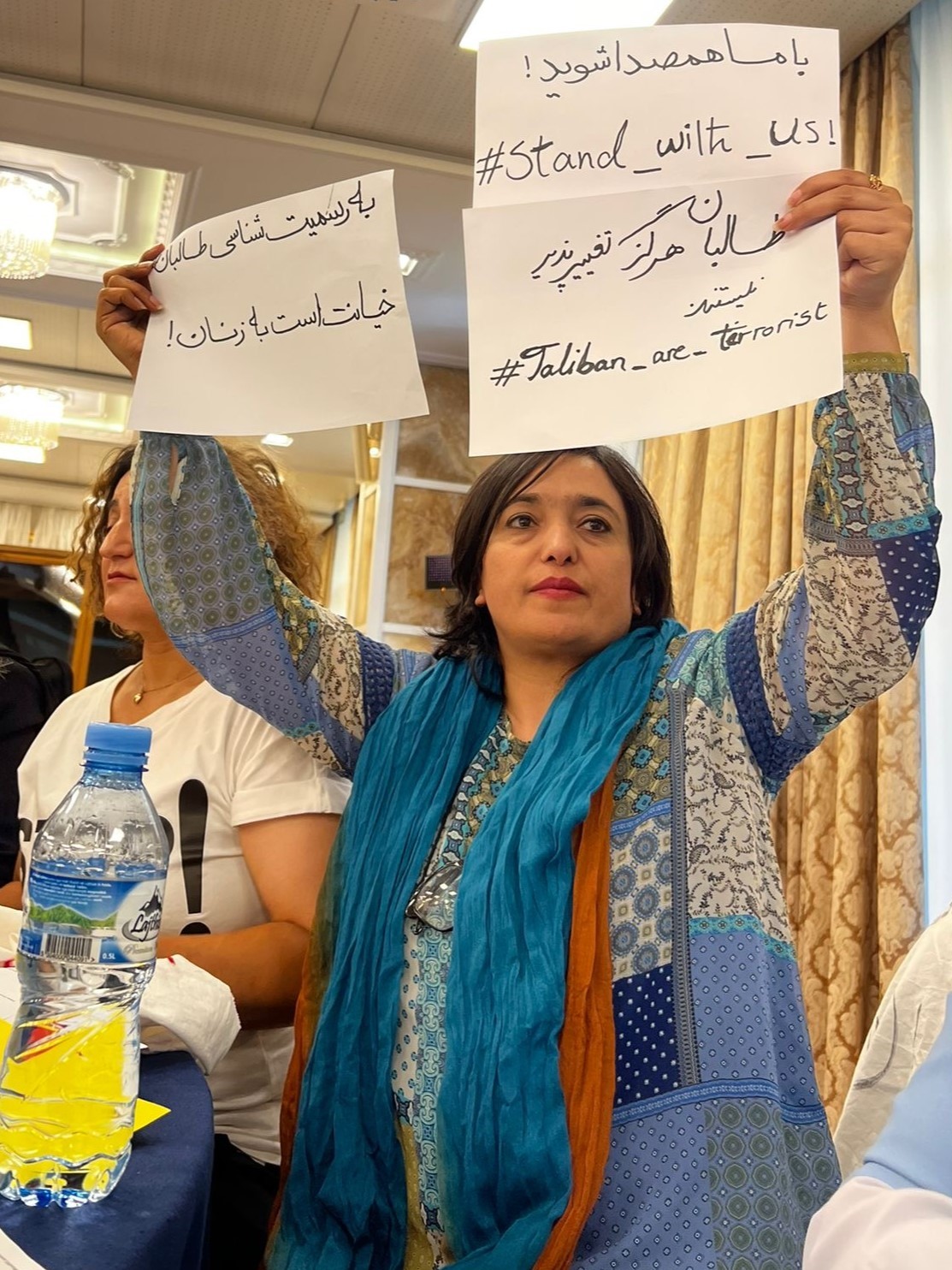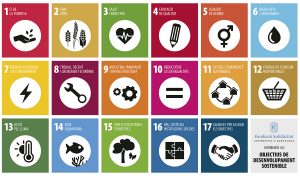Massouda Kohistani, a student of the UB’s Support Programme for Refugees and People from Conflict Zones (UB Refugi), took part in the international summit for the rights of women and girls in Afghanistan to demand an end to the Taliban regime’s gender apartheid.

Last September, in Tirana (Albania), several women’s activist organisations, led by Women for Afghanistan, organised the All Afghan Women Summit, an international summit in defence of the rights of Afghan women and girls. Massouda Kohistani, a student on the University of Barcelona’s Refugee Support Programme (UB Refugi), was one of the activists who travelled to the Albanian capital to demand an end to the Taliban regime’s gender apartheid.
At the meeting, more than 130 Afghan leaders and activists, including those from exile, the diaspora and women’s resistance movements inside and outside the country, discussed strategies to confront the Taliban regime’s repression and promote coordinated international action. The summit was supported by organisations and governments from around the world, including the Albanian, Spanish and Swiss governments. The Spanish Minister of Foreign Affairs, European Union and Cooperation, José Manuel Albares, stated that “the voice of Afghan women should be heard loud and clear in all forums where the future of Afghanistan is decided”, and added that the Spanish Government “supports accountability for human rights violations under international law”.
The summit participants agreed on a declaration of twelve guidelines and demands, with which they hope the international community will respond to the systematic attack on the rights and freedoms of Afghan women and girls by the Taliban.
As a result of the meeting, countries such as Australia, Germany, Canada and the Netherlands have announced that they will hold the Taliban accountable for violating the obligations contracted in the Convention on the Elimination of All Forms of Discrimination against Women, an agreement that Afghanistan ratified in 2003.
In the same vein, Amnesty International has published a petition, open for signatures, with which it demands the international community to adopt unified and stronger measures to force the Taliban to account for the human rights violations committed, to end the persecution on gender grounds, and respect and protect the rights of women and girls.
Massouda Kohistani at the UB
Massouda Kohistani arrived in Spain, specifically in Salamanca, in August 2021. In February 2022, she applied for a grant to take the UB’s Transition Course to University Studies. This official university extension course focuses on learning Catalan and Spanish and training in human rights. After passing this course, in October 2023, Massouda started the master’s degree in Public Policy: Global Security and the Prevention of Violent Extremism at the Faculty of Law. Throughout this time, Massouda has been active in denouncing the violation of women’s human rights in Afghanistan by the Taliban Government.
UB Refugi provides safe and complementary pathways to resettlement
Since 2016, through study grants, the UB’s Support Programme for refugees and people from conflict zones (UB Refugi) has helped around a hundred undergraduate and master’s degree students from different countries in conflict, such as Afghanistan, Palestine, Syria, Somalia, Ethiopia and the Democratic Republic of the Congo. Thanks to these grants, which are part of what the UNHCR calls “safe and complementary pathways to resettlement”, students have been able to leave their countries of origin or first host countries and continue their education and life in Barcelona.
The UB Refugi Programme has the support of Barcelona City Council and, in terms of accommodation, has an agreement with Viladecans Town Council whereby some students can live in a shared flat in the municipality and thus advance in the process of personal autonomy and social inclusion.
Discrimination, segregation and exclusion of women and girls in Afghanistan
Since in 2021, after the withdrawal of US troops, the Taliban returned to power for the second time in Afghanistan, human rights and, especially, the rights of the 14 million women and girls in this country have suffered a progressive deterioration; and, at present, they are systematically violated. According to Amnesty International, women living in Afghanistan cannot go out freely, study, work, play sports or participate in politics; and, from the recent “vice and virtue” laws, they cannot even speak, sing or dance in public. Likewise, abuses such as ill-treatment, arbitrary detentions, torture, forced disappearances and censorship, among others, continue with impunity, without an independent judiciary to which they can appeal.
According to the report of the United Nations Special Rapporteur on the situation of human rights in Afghanistan, “the system of discrimination, segregation, disrespect for human dignity and exclusion institutionalized by the Taliban is motivated by and results in a profound rejection of the full humanity of women and girls“.
In this context of discrimination and the normalization of gender-based violence at all levels, Afghan female human rights defenders have been promoting social and political activities for years, such as protest actions, national and international conferences, and social media campaigns. The activities are addressed to other activists, social organizations and the international community to demand, on the one hand, the recognition of gender apartheid and, on the other hand, the non-recognition of the Taliban as the official and legitimate government of Afghanistan, with which to restart diplomatic or commercial relations.
This news is related to the following SDG of 2030 Agenda:








